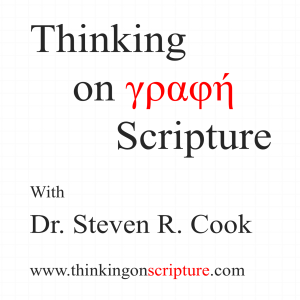
Saturday Aug 17, 2019
Micah 6:1-16
Micah calls for Israel to hear the hear the word from the Lord, who calls for them to arise and bring forth witnesses to a legal hearing (Mic 6:1). Micah then calls for the residents of Israel to hear the charges God is bringing against them, “Because the LORD has a case against His people; even with Israel He will dispute” (Mic 6:2). The Lord asks what He had done to wrong them, or weary them (Mic 6:3), that they should have turned from Him. He calls to their remembrance His goodness by delivering them from slavery in Egypt, by redeeming them, and sending them Moses, Aaron and Miriam (Mic 6:4). “God’s mention of Moses would remind the people of the Law, and the name of Aaron would bring to mind the priesthood. Perhaps Miriam is mentioned because her name would bring to mind her song to the Lord (Ex. 15:21) and her role as a prophetess (Ex. 15:20).”[1] The Lord also mentioned His blessing them, in spite of the desires of Balak and Balaam (Mic 6:5a), and His bringing His people into the promised Land, as the Israelites crossed the Jordan from Shittim to Gilgal (Mic 6:5b). All this was stated so that Israel “might know the righteous acts of the LORD” (Mic 6:5c). Micah poses a series of questions about how Israel might return to God and give Him what He desires; questions related to burnt offerings and yearly calves (Mic 6:6), the sacrifice of rams and the abundance of oil (Mic 6:7a). The sacrifices were intended to be outward expressions of inward humility before the Lord; however, they’d become outward rituals without the inward reality to validate them. It is likely that many thought of the sacrifices as a way of paying God off, so that His judgment would not fall on them. But sacrifices—by themselves—could not atone for Israel’s sins, not even one as extreme as devoting one’s firstborn to the Lord (Mic 6:7b). It is not clear whether Micah was referring to the giving of the firstborn child as an act of sacrificial devotion for holy service to the Lord, or to the pagan practice of child sacrifice. Either way, these things were not what God wanted from them. God told them about the good He wanted from them: to promote justice among their fellow Israelites, to treat the poor, widows, orphans and helpless with kindness, and to walk in modest obedience with the Lord (Mic 6:8). All of this they’d failed to do, as they engaged in criminal behavior (Mic 2:1-2; 3:1-3, 10-11; 6:11), abused the poor, widows, orphans and helpless (Mic 2:8-9; 3:10-11; 6:12), and walked arrogantly (Mic 2:3). God called the cities to hear His voice (Mic 6:9), and to the wicked house that had accumulated unjust wealth by means of corrupt scales (Mic 6:10), which He would not tolerate (Mic 6:11; cf. Lev 19:35-36; Deu 25:13; Pro 11:1; 20:23). He references the rich in the city who practice violence and the residents who practice deceit (Mic 6:12), pronouncing judgment, saying, “I will make you sick, striking you down, [and] desolating you because of your sins” (Mic 6:13). God promised they would not be satisfied with their wicked wealth, and that they would go into captivity (Mic 6:14-15; cf. Lev 26:26; Deu 28:30, 33, 39-40). His judgments upon them were because of their sinful choices to walk in the ways of Omri and Ahab, two of Israel’s worst kings, who were known for advancing idolatry and persecuting the righteous (1 Ki 16:23-26; 16:29-33). In all this, God is sovereign to rule, righteous to judge, and faithful to execute His promises.
[1] John A. Martin, “Micah,” in The Bible Knowledge Commentary: An Exposition of the Scriptures, ed. J. F. Walvoord and R. B. Zuck, vol. 1 (Wheaton, IL: Victor Books, 1985), 1488.
No comments yet. Be the first to say something!